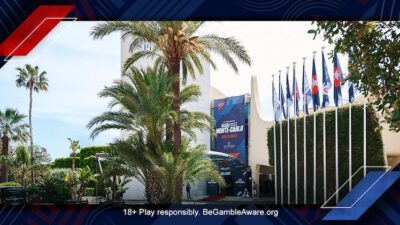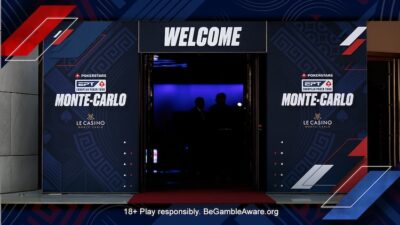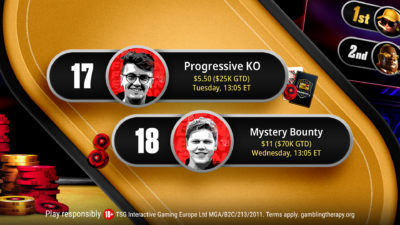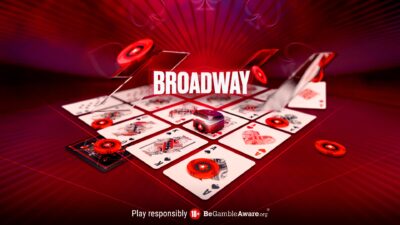So it’s February, not exactly the time for New Year’s resolutions, except when it comes to ditching them. But if you’re one of those poker players looking to improve, or if you’re an existing player still keen to learn a thing or two, then it’s never too late to add deliberate practice to your poker routine.
This was something that came up during the recent TCOOP series (players describing their systematic approach to improving their game), and reminded me of a conversation I had with a professional player a year or so ago.
It was a media event at one of the bigger PokerStars festivals, the type that professionals would play to spice things up a little. As luck would have it I drew the seat next to a young pro; charming, intelligent, and fuelled by a combination of complimentary wine and the chance to crush people. She was also in the mood to talk.


For modesty reasons I won’t reveal her name. While she played hands with ease she explained that she was sitting on a cushion because her hips were too small (forcing me to look), and that she’d discovered recently that when enjoying her other hobby her performance was markedly better when, well, menstruating. This other hobby was marathon running. I was in no position to argue.
All of which made her pretty easy to like, and it was a fun game for everyone. But there was something else that struck home, something she repeated (albeit not in so many words) in the explanations about her training regimen. It was this idea of hard work and dedication.
You can’t play poker well without practice, just as you can’t run a marathon without dedicating a certain part of your life to it, at least in the short term. As she put it, running marathons is like having a part time job. You don’t just get up one morning and run a marathon. You train for it.
Now… you can just get out of bed one morning and play poker, we get that, but this is what she’d committed herself to with her training, to a point where she’d recoded a personal best time of 3 hours 23 minutes. That was a while back. A few months prior to her saying this she’d run another marathon, and finished in 3 hours 28 minutes. You or I might just be glad to finish the course without having killed ourselves, or at least ahead of the guy dressed as a rhino. But she was devastated.
And so she was already working out how to beat that time (hence the mention of intimate theories), and slice minutes, even seconds off her time.
It might seem like such a lot of work for what was only a marginal gain. But then that’s what separates the 3 hour 23 minute runners from the four or five hour runners. That’s also what happens to separate the great poker players from the good ones.


But while putting in the hours is one thing, how you use that time is arguably more important.
It’s a theory that’s been examined at length elsewhere, and by people far more qualified to talk about it than me (marathon runners for instance, and best-selling authors like Malcolm Gladwell): not only does it take practice, but it takes the right kind of practice to improve.
How you practice is important, and it applies to almost everything. You have to practice those things you find difficult in order for them to become second nature. Just like you’ll never master the finger variations of Voodoo Child if you stay forever in your three-chord Nirvana comfort zone, you’ll never be able to stop worrying about that check raise on the river until you work on how to counter it.
So where do you begin? Luckily, this is where we can help.
PokerSchoolOnline exists to turn you into a better poker player, as hundreds of thousands have already discovered.
It’s not just about reading articles and hoping this stuff sinks in. It’s about identifying those weaknesses in your own game, and fine tuning them using the advice found on the PSO website – detail that’s tried, debated, and then tried some more.
To register with PokerSchoolOnline you’ll need a PokerStars account. Getting one of those is easy and takes just a couple of minutes. Click here to get started.
Patience is your friend, and the rewards will come at the tables. That applies to new players getting used to playing position, or more experienced players still unsure as to why they’re outplayed in certain situations. It’s a resolution worth introducing into your poker routine.
It also counts for marathon runners. At least I’m pretty sure it does. If I hadn’t busted that media event first I’d have heard the explanation as to why. I just hate being check raised on the river.
If you’ve already got an account with PSO then you can jump right back into this resolution. If not then registering is free and simple. Simply log into your PokerStars account and sign into PSO via the PokerStars lobby. Meanwhile you can click here to go to the PokerSchoolOnline homepage and get started.
Stephen Bartley is a staff writer for the PokerStars Blog. Follow him on Twitter: @StephenBartley. What did you think about this post? Let us know on Twitter: @PokerStarsBlog.
Back to Top






